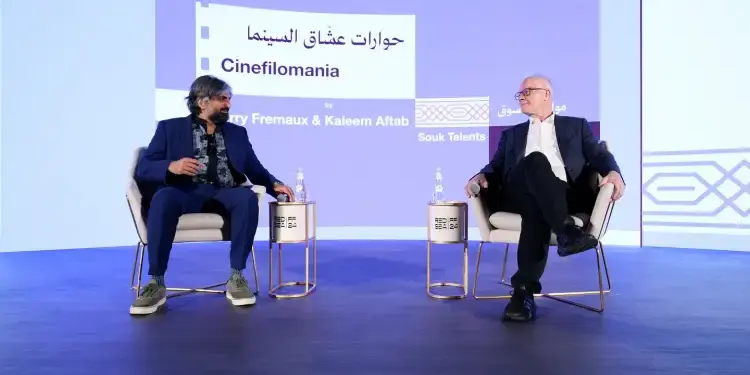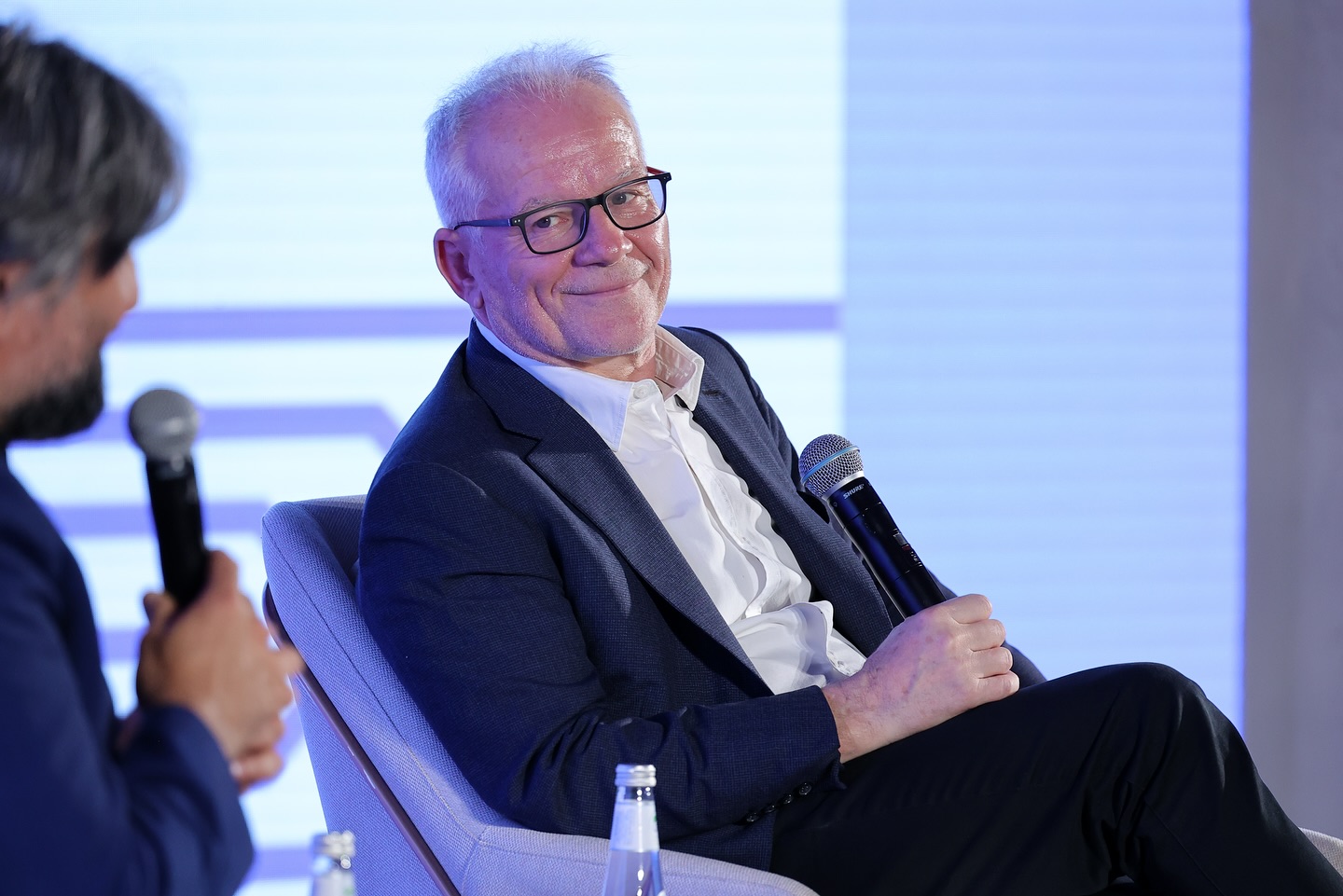During the fourth edition of the International Film Film of the Red Sea (RSIFF), Thierry Frémaux, an essential figure in world cinema, captivated the audience with a Master Class entitled “Cinefilomania”. Whoever has embodied, for over twenty years, the soul of the Cannes Film Festival has shared his extraordinary career, his reflections on cinema, and the anecdotes that shape his unique vision of the seventh art.
Originally from Lyon, the cradle of the Lumière brothers, Thierry Frémaux fell in love with cinema from an early age, influenced by his father, a member of a film club. The latter introduces him to works that will forever mark his imagination. Driven by this passion, he studies social history and obtains a master’s degree with a memory devoted to the beginnings of the journal of Positive. He then started a DEA on the social history of cinema, which he interrupts when he is recruited by the Lumière Institute, founded by Bertrand Tavernier.
The Lumière Institute is a founding stage in its career. “” I was 20 years old, I went to ask if they needed help. I was hired as a volunteer. I was a slave, but a happy slave. This role, first volunteer, opens the doors of the world of cinema and pushes him to develop a professional ethics based on passion and humility. In Lyon, he contributes to restoring major works and reviving the heritage of the Lumière brothers, which nourishes his love for the cinema as a place of artistic communion.
In 1979, Thierry Frémaux went to the Cannes Festival for the first time. At the time, he had no accreditation, no contact, nor even enough to accommodate properly. He sleeps in his car, carried by a visceral love for cinema and a fascination for this legendary festival. This first contact with Cannes, although modest, seals a relationship that will become the central element of his professional life.
It was only after several proposals and refusals that he finally accepts to join the Cannes Film Festival, where he became general delegate in 2007. ” I was first offered to direct the French cinematheque, but I said no. Then, I was asked to go to Cannes. I hesitated before accepting three years later. Today, he divides his time between Cannes and Lyon, a balance which he considers essential.
During his master class, he explains his unique approach in terms of selection: he does not choose a film only for his intrinsic quality, but for what he can bring to the festival. “” My role is not to select what I like personally, but what deserves to be shown in Cannes. Sometimes there are films that I don’t particularly like, but which have their place here. Conversely, some excellent films do not suit it. »»
For Thierry Frémaux, Cannes is much more than a simple festival: it is a microcosm where directors, actors, journalists, criticism, and even local residents coexist. “” Cannes is a global festival but takes place in France. It is a place where the big films protect the little ones, where the artistic quality is always at the center. »»
The Red Carpets of Cannes, which he describes as ” full -fledged show », Are not just a simple fashion show. They constitute a moment of communion between artists and the public, a highlighting of hard work behind each film presented. However, he does not hesitate to recall that criticism, debates and lively discussions between journalists and spectators also play a crucial role in the identity of the festival.
The role of Thierry Frémaux is also marked by sometimes controversial, but visionary decisions. He talks about his choice to program Devdas In 2002, a consumer Bollywood film that had divided opinion. “” It was not an author’s Indian cinema, but popular cinema. However, it was a masterpiece. I regret not having put it in official competition. »»
More recently, he made the decision to present The substance in official competitiona horror film of the genus “body horror”, which he was poorly served by sections like the Midnight Screenings. “” A film must receive the attention it deserves, no matter its genre. This choice reflects its desire to defend diversity and to redefine the boundaries of what is considered to be “legitimate” in a festival as prestigious as Cannes.
The process of selecting films is a rigorous, almost exhausting exercise. “” In April, my collaborators and I have our eyes in a lamentable state by dint of watching films. Sometimes we have to take a break to preserve our judgment. “Despite this fatigue, Thierry Frémaux remains animated by the excitement of discovering” The Beautiful Film “, the one who justifies all the sacrifices.
Asked about the future of cinema in the face of the challenges posed by streaming platforms and the pandemic, he remains optimistic. For him, the collective experience of the cinema is irreplaceable. “” The Lumière brothers invented not only cinema, but also the art of sharing emotions on the big screen. It will never disappear. »»
Thierry Frémaux also expressed his admiration for the RSIFF, which he considers as an emerging platform of great importance for Arab and African cinema. “This festival has everything to become an unmissable event, both by the quality of its projections and by the diversity of its selection. »»
Beyond figures and successes, Thierry Frémaux embodies a philosophy of cinema based on passion, daring and respect for art. When asked what he advises young filmmakers, he simply replies: ” Make a good movie. No matter his genre, he will eventually find his place. »»
His journey, between Lyon and Cannes, between red carpets and dark rooms, is a vibrant tribute to the strength of cinema as a vector of emotion and humanity. Through his choices, his stories and his commitment, he inspires a new generation of moviegoers to dream of large, while keeping his feet on the ground.
Neïla Driss









